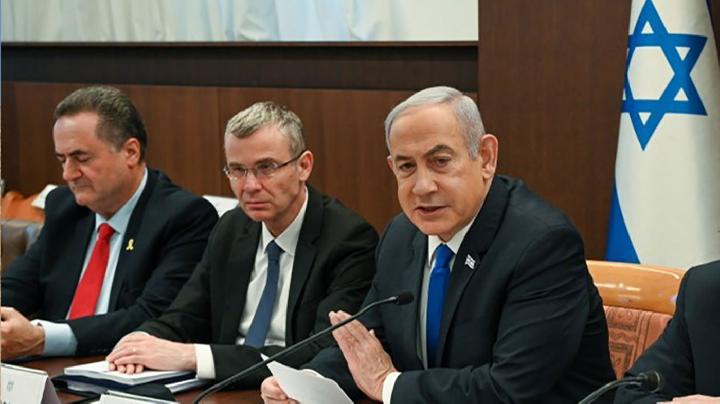TEMPO.CO, Jakarta - ASEAN countries are closing ranks in response to the United States' sweeping import tariffs, referred to as reciprocal tariffs, which were announced by President Donald Trump on April 2, 2025.
The policy, which imposes a blanket 10 percent tariff on all imports and significantly higher rates for selected nations, has sent ripples across Southeast Asia, raising concerns over trade disruption and economic stability in the region.
As key economies such as Indonesia and Malaysia begin diplomatic coordination, ASEAN members are bracing for the broader implications of what could become a new era of global protectionism.
Here are five key facts you need to know about ASEAN's response and the potential economic fallout from Trump’s Reciprocal Tariffs.
1. ASEAN Tariff Breakdown
According to an official White House document, the U.S. claims that Southeast Asian trade partners have engaged in unfair trade practices; an accusation used to justify the retaliatory tariffs. The following are the imposed tariff rates for ASEAN member states:
Cambodia: 49%
Laos: 48%
Myanmar: 44%
Vietnam: 46%
Thailand: 36%
Malaysia & Brunei: 24%
Philippines: 17%
Indonesia: 32%
Singapore: 10%
2. Indonesia and Malaysia Initiate Joint Steps
Secretary of the Coordinating Ministry for Economic Affairs, Susiwijono Moegiarso, stated that Indonesia has coordinated with Malaysia as the current Chair of ASEAN to initiate joint steps in response to the US tariff policy.
"Indonesia has communicated with Malaysia as the ASEAN Chair to take joint steps," he said in an official statement on Thursday, April 3, 2025.
This policy sets a minimum tariff of 10% for all imported products to the US and higher tariffs for certain countries. For instance, Indonesia is subject to a 32% tariff, placing it as the 8th highest tariff-burdened country in the world according to the new policy.
3. Indonesia Sends Negotiating Team to the U.S.
In response, Indonesia has dispatched a high-level delegation to Washington, D.C., for direct negotiations. Head of the Presidential Communications Office (PCO) Hasan Nasbi confirmed that the lobbying team has been tasked with engaging U.S. officials.
“The government has sent a high-level lobbying team to negotiate with the U.S. government,” Hasan said on Friday, April 4, 2025.
Meanwhile, the government is assessing the economic impact of the tariffs and is moving to simplify domestic regulations to enhance the global competitiveness of Indonesian products.
Coordinating Minister for Economic Affairs Airlangga Hartarto stated that national strategies are being developed to preserve export strength.
"Together with Bank Indonesia, the Indonesian government is also continuously maintaining the stability of the Rupiah exchange rate and ensuring that foreign exchange liquidity remains maintained to support the needs of business actors and to maintain overall economic stability," he said.
Key export sectors potentially impacted include electronics, textiles, footwear, rubber, palm oil, and fisheries.
4. Rupiah Faces Further Depreciation
Economic expert Didin S. Damanhuri, a professor at IPB’s Faculty of Economics and Management, warns that the tariff policy may accelerate the depreciation of the rupiah, potentially pushing it to Rp17,000 per U.S. dollar.
He described the reciprocal tariff as a global shock with direct effects on currency stability.
The rupiah had already been under pressure due to negative domestic sentiment stemming from recent political controversies and populist policies, which had caused it to weaken to Rp16,700 per U.S. dollar.
“With the additional pressure from this U.S. policy, the negative sentiment towards the rupiah is further strengthened,” Didin explained to Tempo.
5. Japan and China Respond with Concern
Other countries are also not standing idly by. Japanese Prime Minister Shigeru Ishiba referred to the US import tariffs on Japanese products by Trump as a "national crisis" on Friday, April 4, 2025, ahead of cross-party discussions aimed at finding solutions to mitigate the impact of the policy on Japan's export-dependent economy.
Meanwhile, the Chinese Ministry of Commerce strongly rejected the new tariffs and stated that it will take retaliatory measures to protect the rights and interests of the country.
Yolanda Agne, Achmad Ghiffary Mannan, and Ervana Trikarinaputri contributed to the writing of this article.
Editor's Choice: Indonesia's Coordinating Minister Warns of Growing Recession Risk Amid U.S. Tariffs
Click here to get the latest news updates from Tempo on Google News


















































